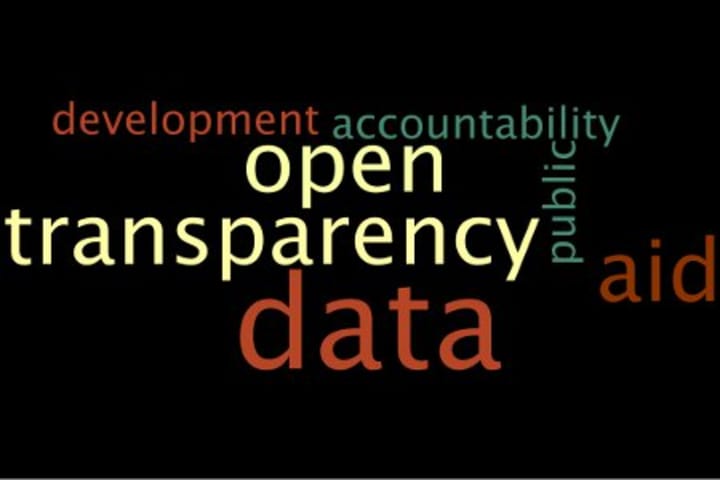
I agree with the previous Full Disclosure contributions about the importance of more and better development aid data, as I have expressed on my blog. I also think that the International Aid Transparency Initiative is important.
But agreeing on standards for publishing aid data is only a first and relatively small step and linking transparency to real, new, innovative 21st century accountability and participatory ideas will be the much bigger challenge.
How can citizens hold their government accountable for what may essentially be a political decision that won’t be reversed or changed using management tools and technocratic fixes? (I don’t mean in the traditional “every four years there are elections” way.) And, at least equally important, how can said citizens hold a multinational organisation accountable? (I do not mean in the traditional “your country sends a representative to the budget/audit committee” way.)
I agree with Steve Tibbett’s post that aid data should be the entry point to challenge dominant discourses around the “effectiveness” of foreign assistance. But I have doubts that releasing complex raw numerical data can achieve a thorough, forward-looking discourse around key questions in international development. I am also curbing my enthusiasm at the moment for a few more reasons.
Data fatigue
Daniel Kaplan’s interesting post on “Open public data – then what?” outlines a few scenarios in the “post-Wikileaks” information age; one is focusing on “data fatigue.” Raw data can be very boring and the more data is out there, the less focused debates will be and the more expertise from experts will be necessary. Do people really care that much about foreign aid?
In his conclusion, Kaplan introduces the example from a local initiative in the U.K. to highlight the problem that “[a]fter a few initial contributions to FixMyStreet and the likes, citizens become tired of having to do their municipality’s job. Open data hasn’t done much harm, but not much good either.” This seems to be definitely a risk for aid transparency initiatives as well.
The ‘wrong’ debate?
Once data is in the public domain, it will not only be used for informed, complex and civilised discussions, but also for populist contributions, most likely from the conservative, right-of-centre community that is already very sceptical about international development and its organisations. The result may not be timely accountability and broad public participation – and we may not see any organisation or governmental agency actually improve its operations, budget procedures or policies.
Politics, accountability international development
The Daily Telegraph published an article a few days ago entitled “WikiLeaks cables: millions in overseas aid to Africa was embezzled”. This interesting story, based on leaked U.S. embassy communication, about “waste” (in a U.K. aid project in an Africa), could be one example of debates we will see once more data becomes available. The bottom line from the government was – and I’m paraphrasing – “Yes, some funds weren’t used properly, but this was an important and successful project worth the risk.”
That may be so, and in the future we may imagine that such data would be available without Wikileaks and secret documents. But that does not solve the underlying issue: There was a political consideration for doing this project and that needed to be balanced with the need of implementing a “successful,” transparent, fair project. Was the “waste” acceptable or not? The short answer: It depends.
Accountability, citizens and jobs in the aid industry
I sometimes wonder where the citizens of donor countries are who would like to learn more about development spending and how they usually express their satisfaction or dissatisfaction with development. Right now, the debates around aid transparency seem to be driven by a relatively exclusive circle of voices that hardly have a “democratic mandate.” Transparency advocates are pointing out that important debates between civil society, citizens and aid recipient governments are starting to emerge, but I do not see similar debates taking place in the “global North.”
All of us have to try to use data to really engage with “the people” outside the conference circle in Paris, academia or the blogosphere. The experiences of ActionAid in becoming a more accountable organisation make for an interesting case study into the complexity of engaging with people over numbers and budgets. (I recommend the video on “Building Accountability”.) And we’re back to the question of how to balance “effectiveness” and accountability, which Till Bruckner blogged about recently.
Do you have any innovative ideas or case studies where aid transparency, citizen engagement and accountability are brought together? Please share by posting a comment below. Thanks!
Read more of Full Disclosure: The aid transparency blog, written by aid workers for aid workers.




